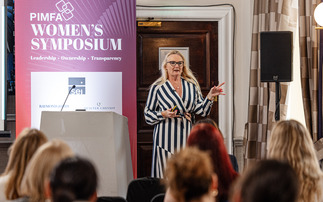
The Department for Work and Pensions (DWP) has frozen the qualifying earning band triggers for auto-enrolment (AE), meaning an effective contributions rise for thousands of workers.
The DWP revealed the results of its review into the AE earnings trigger and qualifying earnings band for 2022/23 on Tuesday (8 February) - noting that AE contributions would be based on a band of earnings between £6,240 and £50,270 a year and that the earnings trigger would also be fixed at £10,000.
Aegon head of pensions Kate Smith said this was the first time the DWP has frozen the qualifying earnings band triggers which means that, after last year's technical ‘no change', for the second year running AE contributions will be based on a band of earnings between £6,240 and £50,270 a year.
She said this effectively meant that both employee and employer contributions will rise slightly as wages increase.
In addition, Smith said that by freezing the earnings trigger at £10,000 - the same level it has been since 2014/15 - would bring an additional 17,000 employees into workplace pension saving.
Smith commented: "Given the widespread cost of living concerns, we believe the freezing of the AE thresholds provides the right balance between affordability and enabling more employees to benefit from employer contributions, as well as marginally increasing personal pension contributions. Wage increases should mean that employees will see little difference in take-home pay as a result of the slightly higher personal contributions.
"The hope is that by keeping the earnings trigger at £10,000 the government will have breathing space to work on future improvements to AE, including the introduction of the 2017 review of AE recommendation."
Andrew Tully, technical director at Canada Life said: "Freezing the AE threshold at £10,000 still means more workers will be auto-enrolled as their earnings increase above £10,000. However, it fails to address the major issue which is the many people - mostly women - who earn below £10,000, or have multiple jobs each of which are below £10,000, who aren't auto-enrolled.
"We know automatically enrolling people in a pension has been a huge success, now we need to extend that coverage to more people who are currently missing the opportunity to benefit from their employer's pension contributions."
AJ Bell head of retirement policy Tom Selby added: "The decision to freeze the earnings level at which savers are automatically enrolled into a workplace pension scheme at £10,000 will result in thousands more people saving for retirement, many for the first time.
"Although this is good news, anyone with earnings above £10,000 but below £12,570 - the point at which basic-rate tax at 20% kicks in - who is auto-enrolled into a ‘net pay' scheme risks missing out on valuable pension tax relief.
"A solution to this so-called ‘net pay problem' has been devised but is not expected to be in place for a number of years. In the meantime, over 1 million people a year risk missing out on the tax relief they are due.
"The band of earnings used for minimum contributions has also been frozen for 2022/23, meaning only earnings between £6,240 and £50,270 will qualify for a matched employer contribution."
Further reviews likely
Quilter head of retirement policy Jon Greer said the government had to "strike a balance" at a time when household finances were stretched while not deviating from the 2017 AE review recommendations which said the lower limit should be abolished.
"Arguably the difference in terms of money in people's pockets is relatively small, but at a time when people are struggling with the increased cost of living there is genuine pressure on the trade-off between income today and income in old age," he explained.
"The alternative would have been to increase the lower earnings limit in line with National Insurance thresholds. Not only would this have moved the lower earnings limit further away from the 2017 AE recommendations, but would have actually reduced pension contributions for the lowest earners.
"Future reviews are likely to lean further towards the adoption the 2017 government review, which included lowering the age threshold for AE from 22 to 18.
"With recent statistics from the Bank of England showing that consumer credit borrowing increased by £800m in December 2021 on top of an additional £1.2bn of borrowing in November 2021, the DWP may need to wait for the household finances to be on a surer footing first. Once we have weathered the current squeeze on finances, it will then be prudent to start to look at how this successful policy can be widened so more people can benefit from saving for their retirement."













